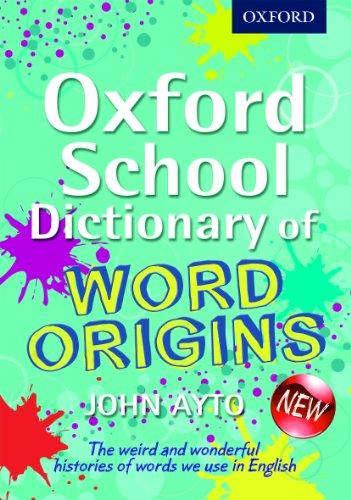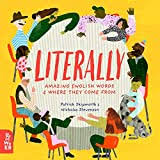Homework Expectations
26 Sep 2021
Homework policy
Expections for Year 2:
Below are the homework expectations for children in Year Two.
Please follow the links for suggestions on how to support your child at home.
Learning to read book
Please attend the regular phonics and early reading sessions for families as these really help you to understand how we teach reading in school.
Little Wandle
Celebratory read at home following direct teaching- matched phonic books go home on Wednesday PM and return on Friday AM
Reading for pleasure
Families are asked to read to their child every day, reading record books help to record reading adventures at home. Children choose from a selection of reading for pleasure books to take home which are changed weekly by the children.
Everybody-read-leaflet-for-parents.
Please attend our regular reading meetings for ideas on how to support RFP at home.
Phonics
Please attend the regular phonics and early reading sessions for families as these really help you to understand how we teach phonics in school.
Guidance is given to parents about progression, letter formation, phonics terminology etc. in line with Little Wandle programme. This can be found on the school website (phonics tab). This includes parent ‘how to’ videos to enable parents to support children at home. All direct teaching happens in school.
Spelling in Year Two
We follow the Little Wandle Spelling programme in Year Two.
Key facts or Times tables Notes
- Key facts are instant recall maths facts that the children need to know fluently in order to be able to access all areas of mathematics confidently and securely. They need to know these ‘off by heart’ by the end of KS1 to free up space in their working memory when solving more complex calculations and it allows them to reason and problem solve with greater depth.
- Numbots is used to help the children be able to recall these key facts by gradually building their number sense and knowledge through repeated practise. Numbots has different levels which the children gradually work through. It is automatically built up to match the child’s current working level. Therefore, it is imperative that your child is allowed to answer questions independently. Each child has an individual login.
- There are two different modes to play on Numbots:
- Story Mode – the emphasis is on learning the ideas and concepts behind addition and subtraction so it features more diagrams, shapes and question styles.
- Challenge Mode – the emphasis is more on speed of recall of key facts, like number bonds to 10, doubling small numbers or adding & taking away in your head.
- TTRS = Times Table Rock Stars.
- TTRS helps children develop fluency in recalling multiplication and division facts up to 12 x 12. There are different modes which support developing these facts in different ways.
- ‘Sound check mode’ mirrors the Multiplication Table Check (MTC) which all children are required to complete at the end of year 4 (a statutory government assessment point)
- Garage mode is set to automatic training mode (for all year groups in KS2). This means the questions adjust as the children improve their knowledge and fluency. The is played against the clock individually.
- Arena mode has the same settings as Garage mode but the children are in a ‘competition’ with other children who are logged on at the same time.
- In year 2, ‘Garage mode’ and ‘Arena mode’ have been pre-set to the 10x, 2x and 5x tables. These are the times tables the children will be learning in school in KS1.
- Your child’s individual numbots/TTRS login will be provided to you at the start of the year. If you lose your login, please let the class teacher know and they can resend it.
- You do not need keep a written record of when your child accesses these games. The class teachers can see when children log in and how well they are getting on from their teacher account.
Year Three
Reading:
Children will closely read a 'practise reading book' in school over a two-week period, after this time the book will come home for a couple of nights to celebrate and enjoy. It is important to return the books when asked so that the next group of children can begin reading (this day will be recorded in your child’s reading record).
At home please encourage your young reader to read a wide range of books, magazines, comics and graphic novels as part of their 'Reading for Pleasure' practice. Read for pleasure every day at home for at least 25-30 minutes. This can be reading to yourself, being read to, or sharing your reading with someone else. Reading for pleasure means that YOU choose what you want to read. This could be a magazine, a recipe, a newspaper, a fiction or a non-fiction book - it's your choice! If you want to try something different, why not choose a book from the school library to read at home. Make a record in your reading record book of what you are enjoying everytime you have a read!
Spelling & Vocabulary:
Have a look at the Y3/4 statutory spelling list that can be found below. Work on these words at home weekly, as you should be able to spell them and similar words by the end of Y4. You might look at one word a day, or look at five words all in one go! Keep on top of these words as we assess them termly (as well as words with similar spelling patterns) to see how you're getting on.
Click here for a copy of the Year 3/4 Statutory Spelling List
Maths:
Keep on top of your Key Facts - the instant recall maths facts that you need to know fluently in order to be able to access all areas of maths confidently and securely. Knowing these ‘off by heart’ frees up space in your working memory when solving more complex calculations, allowing you to reason and problem solve with greater depth.
10 mins 3x per week = Times Table Rockstars sound check mode (in preparation for the Y4 Statutory Multiplication Table Check)
and
10mins 5x per week = Times Table Rockstars (Garage or Arena mode)
Times Table Rockstars helps children develop fluency in recalling multiplication and division facts up to 12 x 12. There are different modes which support developing these facts in different ways.
- ‘Sound check mode’ mirrors the Multiplication Table Check (MTC) which you need to complete at the end of year 4
- Garage mode is set to automatic training mode (for all year groups in KS2). This means the questions adjust as the you improve their knowledge and fluency. This is played against the clock individually.
- Arena mode has the same settings as Garage mode but you are in a ‘competition’ with other children who are logged on at the same time.
- Your individual TTRS login will be provided to you at the start of the year. If you lose your login, please let me know and we can resend it.
Remember to keep singing your times tables at home - think about the times table you are focusing on in class and sing, sing, sing!
Year Two and Three
Further information re the weekly etymology task:
Each week a word of the week will be shared on our twitter feed. Please encourage your child to explore the definition of the word and its origin. Etymology dictionaries are a great help, but similarly word origin websites are great for discovering where a word has come from and how words have changed/evolved. Encourage your child to orally put the word into a sentence, to show they understand the context. Talk and discuss the word at home throughout the week. The word will then be discussed at school as part of our commitment to exploring language and vocabulary.
Etymology dictionaries are really helpful for this kind of task, but you can find out about words on the internet. This task involves lots of talking...talk about the word at home - try using it when you're talking. We'll also spend some time talking about our new vocabulary in class each week.
Great etymology dictionaries:



https://kids.wordsmyth.net/ is great for finding the meaning of words and words that derive from other words.
https://www.etymonline.com/ ia a great etymology website, but you may need help from an adult with this one.